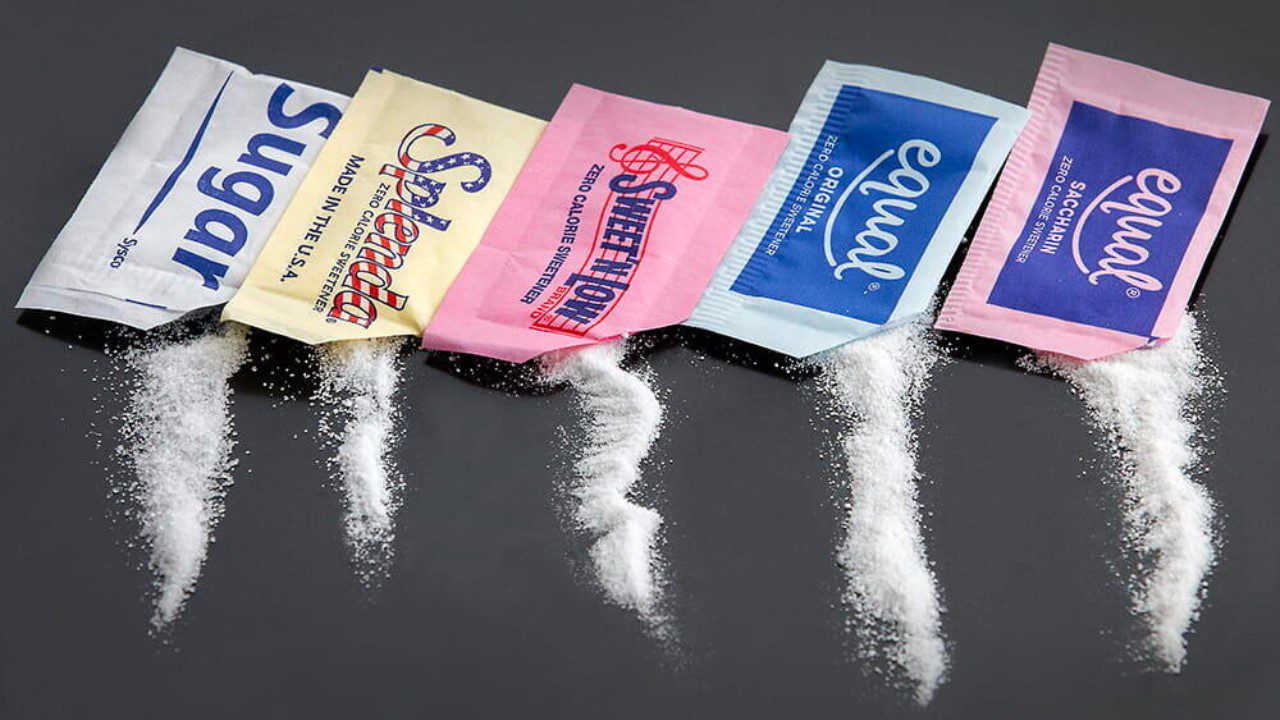Fasting has become a popular health strategy, with many variations like intermittent fasting taking center stage. But when it comes to what you can consume during a fast, things can get confusing. Diet soda, a seemingly calorie-free friend, becomes a question mark. Does that can of cola kick you out of your fasted state, or can you enjoy it guilt-free?
Read this free complete guideline.

The core principle of fasting is abstaining from caloric intake. Since soda boasts zero calories (or close to it), on paper.
Does diet soda break a fast?
No, it wouldn’t break your fast. This is a relief for those who find plain water a bit bland during extended fasting periods.
What about the Artificial Sweetener Curveball?

However, the world of fasting isn’t always black and white. Artificial sweeteners are where things get interesting. These sugar substitutes, while calorie-free, might throw a curveball at your body’s response to fasting.
Potential Insulin Response: Artificial sweeteners may stimulate your taste receptors, mimicking sugar. This can trigger the release of insulin, the hormone responsible for regulating blood sugar levels. Even though there’s no actual sugar to process, this hormonal response could disrupt the fasted state, especially if your goal is improved metabolic health.
Gut Microbiome Impact: Our gut bacteria play a crucial role in digestion and nutrient absorption. Emerging research suggests artificial sweeteners might influence the composition of gut bacteria, potentially affecting how your body processes nutrients and stores fat. More research is needed in this area, but it’s a point to consider.
What are the risks of drinking a diet soda while fasting?
Depending on your fasting goals, diet soda might come with some potential drawbacks:
- Weight Loss: The insulin response triggered by artificial sweeteners could hinder fat burning,
potentially slowing down weight loss progress. - Metabolic Health: Similar to weight loss,
the potential insulin response and gut bacteria changes could be counterproductive for those aiming to improve overall metabolic health. - Autophagy: Autophagy is a cellular cleansing process that might be enhanced by fasting. Some research suggests artificial sweeteners might interfere with this process, though more studies are needed.
How Does Diet Soda Consumption Impact Overall Health?
Diet soda has been a popular drink for decades, marketed as a sugar-free alternative to sugary sodas. But is it truly a healthy choice? Let’s explore the science behind carbonation to understand how diet soda impacts our health.
The Positive Side: Possible Advantages of Diet Soda
Diet soda boasts zero calories, making it a seemingly guilt-free choice for those watching their weight. Unlike sugary drinks that cause blood sugar spikes and cravings, diet soda doesn’t contribute directly to calorie intake.
Staying hydrated is crucial for overall health. Diet soda, with its refreshing fizz, can be a welcome alternative to plain water, especially for those who find water boring.
This is a clear benefit for people managing diabetes or blood sugar levels. Unlike regular soda, diet soda won’t cause blood sugar spikes.
What are the drawbacks of diet soda?

Artificial sweeteners are the magic ingredient behind diet soda’s sweetness without calories. However, research suggests they might trigger the release of insulin, the hormone that regulates blood sugar, even though there’s no actual sugar to process. This hormonal response could potentially disrupt metabolic health in the long run.
Our gut bacteria play a vital role in digestion, nutrient absorption, and even immune function. Emerging research suggests artificial sweeteners might influence the composition of gut bacteria, potentially affecting how our bodies process nutrients and store fat. While more studies are needed, it’s a point to consider.
- Increased Cravings and Weight Gain (Paradoxical?): Some studies suggest that diet soda might backfire when it comes to weight management. The artificial sweeteners might trick the brain into craving sugary foods, leading to increased overall calorie intake and potentially weight gain.
- Potential Heart Health Concerns: Recent research suggests a possible link between high consumption of artificially sweetened beverages and an increased risk of heart disease and stroke.
However, additional research is necessary to establish a cause-and-effect relationship.
The Bottom Line, Fizz or Pass!
Diet soda can be a decent alternative to sugary drinks, especially for those managing weight or blood sugar. However, its potential impact on insulin response, gut health, and even cravings warrants caution, particularly for those with specific health goals.
Making Informed Choices:
- Moderation is Key: If you enjoy diet soda, consume it in moderation. Water should be your primary source of hydration during the day.
- Listen to Your Body: Pay attention to how diet soda makes you feel.
Does it disrupt your sleep?
Does it trigger cravings? - Explore Alternatives: Sparkling water with a squeeze of citrus or unsweetened herbal teas can provide a refreshing, zero-calorie alternative.
What are the benefits of diet soda?
(Yes, There Are Some!)
While diet soda might not be the perfect fasting companion, it does have some advantages:
- Reduced Sugar Intake: This is a clear win for those trying to manage weight or blood sugar levels. Unlike sugary sodas, diet soda won’t cause blood sugar spikes.
- Hydration: Staying hydrated is crucial during a fast. Diet soda can be a refreshing alternative to plain water, especially if you find water a bit dull.

What are the alternatives to diet soda?
Diet soda might offer a sugar-free escape, but with potential downsides to consider, you might be looking for healthier and equally satisfying alternatives. Here’s a delicious dive into some fantastic options to quench your thirst and tantalize your taste buds:
Naturally Fizzy:
Sparkling Water: This bubbly beverage is the clear winner for a straight-up swap for diet soda. Choose plain sparkling water or explore flavored varieties infused with fruits, herbs, or spices. A squeeze of fresh lemon or lime can add a refreshing twist.
- Kombucha: This fermented tea drink offers a naturally fizzy experience with a tangy twist. Packed with probiotics, it promotes gut health, making it a delicious and functional alternative. Just be mindful of sugar content, as some kombucha brands can be quite sweet.
Fruity Refreshment:
- Infused Water: This simple yet versatile option allows you to customize your drink to your taste preferences. Add slices of cucumber, lemon, berries, or mint to water for a burst of flavor and a touch of sweetness from natural sources.
- Freshly Squeezed Lemonade: Homemade lemonade, made with fresh lemons, water, and a touch of stevia or monk fruit extract for sweetness (if desired), is a delightful and healthy alternative. You control the sugar content and get a dose of vitamin C.
- Coconut Water: Packed with electrolytes and naturally sweet, coconut water is a refreshing and hydrating choice, especially after a workout. Choose varieties with no added sugar for the healthiest option.
Herbal Delights:
- Unsweetened Iced Tea: Black, green, or herbal teas offer a variety of flavors and health benefits. They’re naturally calorie-free and packed with antioxidants. For a touch of sweetness, consider stevia or monk fruit extract.
- Flavored Sparkling Water with a Twist: This option bridges the gap between sparkling water and flavored drinks. Choose sparkling water with a minimal amount of natural flavoring, and add a splash of fruit juice for a touch of sweetness and vibrant color.
FAQs about diet soda
Can I drink diet soda while fasting?
Technically, diet soda’s zero calories wouldn’t break your fast. However, artificial sweeteners might trigger an insulin response and potentially disrupt your fasting state, depending on your fasting goals. Consult a dietitian for personalized advice.
Is diet soda bad for my health?
Diet soda has potential benefits like reduced sugar intake and hydration aid. However, drawbacks include the impact of artificial sweeteners on insulin response and gut bacteria and possibly increased cravings. Moderation is key.
What are the benefits of diet soda?
⟶ Reduced sugar intake:
⟶ A refreshing alternative to plain water,
⟶ Especially for those who find it tedious,
⟶ Great for weight management and blood sugar control.
What are the drawbacks of diet soda?
- Artificial sweeteners and insulin: May trigger insulin response despite no sugar, potentially impacting metabolism.
- Gut microbiome impact: Artificial sweeteners might influence gut bacteria, affecting nutrient processing and fat storage.
- Increased cravings and weight gain (paradoxical): Studies suggest diet soda might lead to increased overall calorie intake due to cravings.
- Potential heart health concerns: Some studies suggest a link between high consumption and increased risk of heart disease and stroke, though more research is needed.
What are some alternatives to diet soda?
- Sparkling water: Plain or flavored with fruits, herbs, or spices. Add a squeeze of citrus for a refreshing twist.
- Kombucha: Fizzy fermented tea with probiotics for gut health. Be mindful of the sugar content in some brands.
- Infused water: Customize with fruits, vegetables, or herbs for natural flavor and sweetness.
- Freshly squeezed lemonade: Made with lemons, water, and a natural sweetener (optional) for a healthy and delicious option.
- Coconut water: Electrolyte-rich and naturally sweet, perfect for hydration after exercise. Choose varieties with no added sugar.
- Unsweetened iced tea: Black, green, or herbal teas offer antioxidants and a variety of flavors. Sweeten with stevia or monk fruit extract (optional).
- Flavored sparkling water with a twist: Choose minimally flavored sparkling water and add a splash of fruit juice for sweetness and color.
Conclusion
Diet soda can be a confusing beverage when it comes to fasting. While technically calorie-free and not breaking your fast, the artificial sweeteners might cause an insulin response, potentially hindering your fasting goals.
Diet soda has some advantages though, like reduced sugar intake and hydration, but also comes with drawbacks like potential impacts on gut health and cravings. Moderation is key.
If you’re looking for alternatives, there are plenty of delicious and healthy
➢ options like sparkling water,
➢ unsweetened iced tea,
➢ or infused water.






